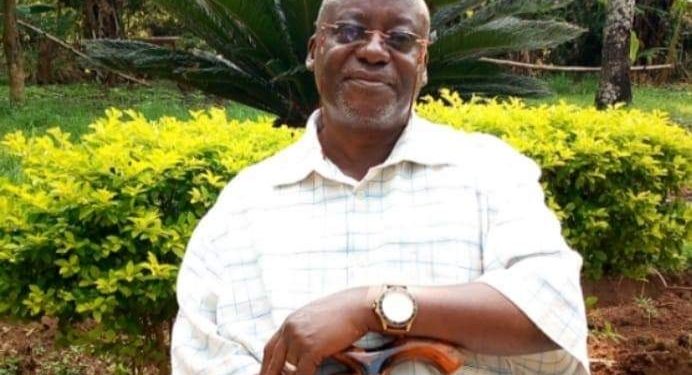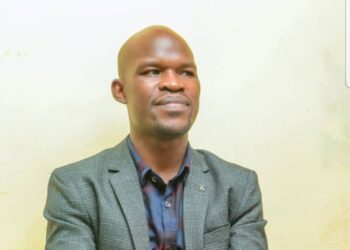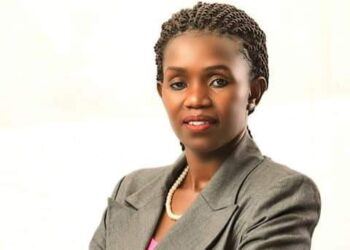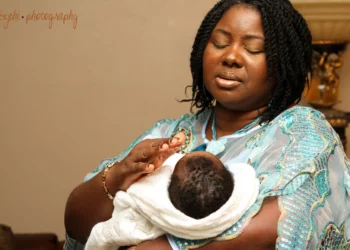In a BBC News article of 30th October 2022 titled “Muhoozi Kainerugaba – Uganda’s ambitious tweeting General”, Professor Peter Kagwanja, of the Kenya-based Africa Policy Institute, does not think or believe that President Tibuhaburwa Museveni and his son are contradicting each other. Neither does he think and believe that the family of the President is split because of power. The Professor’s observation is not far-fetched from the truth. If President Tibuhaburwa Museveni was in contradiction with his son, he would have acted to discipline him militarily since there is no evidence to show he is a politician belonging to the President’s party, the National Resistance Movement (NRM). He cannot take the General for disciplining by the Party’s disciplinary arrangement. He has consistently promoted him until recently he gave him the highest rank in the army. That showed he is happy with his son. If there was a rank higher than General, he would most likely give it to him.
In the past, soldiers who showed deviant behavior would either be demoted or kept on Katebe (meaning assigned no work), General Tinyefunza alias Sejusa and General Henry Tumukunde, were separately and on different occasions either sidelined from army work or paraded before the military tribunal for disciplining. They were not politico-military men like most of their colleagues from the bushes of Luwero.
It was General Sejusa who in 2013 revealed to Ugandans and the world that there was a plot called Muhoozi Project designed to ensure that General Muhoozi Kainerugaba stepped into the shoes of his father in case he was no longer President of Uganda. There is no doubt that the President has handled his son differently from how he handled Sejusa and Tumukunde. Although he demoted him from the all-powerful position of Commander of the Land Forces, he has allowed him to advertise his political ambitions while in army uniform. It is possible that the Muhoozi Project is on course since General Muhoozi Kainerugaba’s supporters have publicly demonstrated that they prefer him to his father. Very recently they wore Ti-shirts with “Muhoozi Project” on. They were not arrested. Curiously the President recently travelled to Hoima to open a hotel of one of the key supporters of General Muhoozi Kainerugaba and architects the Muhoozi Project. The President, who is adequately aware of everything small and big in the country, instead expressed ignorance of the Muhoozi Project. This way he has allowed a situation to obtain that he does not mind if his son expresses interest in his chair.
Indeed, General Muhoozi Kainerugaba, in one of his tweets, showed that he is not a politician, which other Generals of the Uganda Peoples Defense Forces (UPDF), such as his father, Kahinda Otafiire and Jim Muhwezi are. It is likely he will continue to make political statements with no threat of being called to order by the Commander-in-Chief of UPDF or those immediately below the Commander-in-Chief. They will continue to ignore General Muhoozi Kainerugaba’s political stances wile still a serving officer of UPDF. By their collective silence, they are knowingly or unknowingly spurring General Muhoozi Kainerugaba on and creating the public impression that the army is President Tibuhaburwa Museveni’s family military outfit, Indeed the President has many times in the past referred to UPDF as his army. Even very recently General Muhoozi Kainerugaba also referred to UPDF as his army when in one of his tweets he said he could capture Kenya’s Capital City in two weeks. One academic who did not want to be identified said, “In effect the army is co-owned by the President and his son. Being called Uganda People’s Defense Forces is a deception. The people of Uganda have no sovereign ownership of the army. President Museveni and his son have”.
One politically serious statement in one of General Muhoozi Kainerugaba’s recent tweets was that the NRM is not serving the interests of Ugandans. If it was a statement from another General, NRM politician or an Opposition politician, the NRM Chairman, who is also the absolute ruler of Uganda, would have swung into action publicly. Instead, many believe, he arranged a family meeting between the General and his uncle, General Salim Saleh Akandwanaho. General Muhoozi Kainerugaba informed Ugandans and the world about the Meeting in a tweet. What General Kainerugaba was to discuss with his uncle remained secret. However, he promised that he would reveal what transpired in the meeting as soon as possible. I don’t know whether he has.
However, I am sure the Commander-in -Chief and President of Uganda, Tibuhaburwa Museveni and his military Commanders were probably not completely in the dark of what General Muhoozi Kainerugaba was going to discuss with his uncle.
At least General Kahinda Otafiire has declared his preference for Tibuhaburwa Museveni to continue as President beyond 2026, indicating he is not amused by Muhoozi Kainerugaba’s Twitter-based politicking and expression of interest in the topmost job in the country. However, Kahinda Otafiire’s son, Ernesto Otafiire, has told General- Muhoozi Kainerugaba to be humble and go slow, since, according to him, their parents are in the evening of their regime. He even warned the General that when the aging Generals leave, exile life is staring at them (the children). He went on,“This country does not belong to any of (us). It was here before we came, it has been here and it will be here long after we are gone, So be humble and calm down”.
What seems to be increasingly evident is that Uganda was not just captured by the rebels of Luwero, but is in the hands of a few of them and members of their families. Obviously the so-called NRM historicals who have become stinkingly wealthy would rather stick with President Tibuhaburwa Museveni rather than switch to his son. In their thinking and belief, their wealth would be safe so long as the President is in power.
Oblivious to the truism that most of the millions of Ugandans of this generation are tired of the rule by the family of his father and his bush colleagues, General Muhoozi Kainerugaba claims to be the leader of the generation, which includes the vast majority of the youths of the country. In one far-reaching tweet the General wrote: “In a few weeks, I will make an important announcement. Not on Twitter but by other means. I will make it in my personal capacity and as the leader of our generation”.
By “our generation”, General Muhoozi Kainerugaba may have been referring to the group of young people who are anxious to ensure that when his father leaves, he automatically replaces him as President of Uganda. His father is silent, which is sending the signal that he might be approving of what his son is doing outside the military but still in army uniform.
According to Professor Peter Kagwanja, cited by BBC News of 30th October 2022, “That family (Tibuhaburwa Museveni’s) controls Uganda. His mother is in the cabinet, and he is the prince, waiting to succeed his father,” said Peter Kagwanja of the Kenya-based Africa Policy Institute. Like former US President Donald Trump once did, the general uses tweeter to raise his profile”. If this is true, then General Muhoozi Kainerugaba, Salim Saleh Akandwanaho and President Tibuhaburwa Museveni are not in contradiction at all. Professor Kagwanja says, General Muhoozi Kainerugaba is an “agent provocateur” who tweets to gain access to African leaders and to advance Uganda’s political objectives: Professor Peter Kagwanja adds, “Muhoozi provokes, then his father arranges for him to go and apologise, and in this way he is introduced into the circles of leaders. Father and son were working together. Muhoozi projects himself as the opposite to his father, of being a chaotic person – that makes his father look good.”
If the BBC News article were written today, Professor Kagwanja would probably be cited saying, “President Tibuhaburwa Museveni is the one who arranged for his son and his uncle Salim Saleh to talk so that the son would gain fresh wisdom as to how to proceed towards meeting his political ambitions. The aim was not to dissuade the son from his political ambitions, but to keep him on track. It serves their joint interest of ensuring that power does not get out of their family”.
If this were correct it would mean that the issue of Presidency of Uganda is not an issue for the people of Uganda to decide but the three Generals – General Tibuhaburwa Museveni. General Salim Saleh Akandwanaho and General Muhoozi Kainerugaba. It would mean the NRM Party’s role is to create the impression that President Tibuhaburwa Museveni has been and continues to be in power by people’s choice. Or else President Museveni would have summoned his top NRM leaders for a meeting to decide how to deal with the phenomenon of a serving military leader who is persistently and consistently showing ever accelerating interest in his chair.
One time in the early 1990s, President Tibuhaburwa Museveni told a journalist who sought an interview with him at his Kisozi farm that “Uganda has its owner”. He did not say “Uganda has its owners”, which would automatically mean Ugandans. With the passage of time, it has emerged that “Uganda has its owner” did not apply to President Tibuhaburwa Museveni as such but to his family, which includes his half-brother, his children, his grandchildren, his wife and his sons of law and daughter in law. In fact, the President was cited in a Kenyan Tv interview stating that he works for himself, his family and his grandchildren.
The family has extensive business interests in the country. Some people say its business tentacles are widespread in East Africa. Even when the European Parliament was recently in conflict with the President of Uganda over human rights and economic segregation in the oil industry of Uganda, it emerged that the oil industry had become a family matter in keeping with the President’s repeatedly pronounced “My Oil”. This political attitude to the economy could be an extension of the attitude to power, which excludes alternative leaders from the Presidency at all costs.
Professor Peter Kagwanja, cited by BBC, News says, “That family (of President Tibuhaburwa Museveni) controls Uganda. His (Muhoozi Kainerugaba’s) mother is in the cabinet, and he is the prince, waiting to succeed his father,” Controlling the country means many things:
It means controlling the thoughts, movements choices and even belonging of the people.
It means disconnecting people from their time-tested lifestyles that were productive and culturally imparted social and economic security to local communities.
It means disruption and distortion of the lives of citizens, sinking them further and further into income poverty for the benefit of a few people that have captured the country, State and the economy.
It has meant that the historical, biological and cultural links of many indigenous groups of Ugandans, are distorted through land grabbing by a small group of people belonging to nomadic-pastoralist human energy system. Consequently, the ecological-biological, socioeconomic and sociocultural aspects of the indigenous people are being distorted. Many people are now internal refugees in a country, which was once theirs, with no more linkage to the land.
It means denial of the citizens many rights – political rights, human rights, right to development, right to a wholesome environment.
It means narrowing opportunities for the absolute majority for the benefit of a few.
It means infiltrating institutions consistently and persistently with closely related people belonging to one ethnic group.
It means exclusive governance whereby people not belonging to certain families of a group dominating the political and economic space marginalized and abused.
It means total control over the health and education enterprises, with the majority of citizens either excluded from associated public services or afforded poor quality services.
It means control over executive, legislative and judicial process.
It means exclusive control over the national budget and increasingly diminishing allotment of adequate to the social sector. It means exclusive control over natural resources.
It means determining the futures of everyone in a way that benefits those in power and connected to power
It means individualization of the crops of Uganda. It means over reliance on loans to finance the economy.
Therefore, if as Professor Peter Kagwanja says the family of President Tibuhaburwa Museveni controls Uganda, then the President would be interested and happy to create circumstances that favour the status quo. That then would give credence to claims that the President would like his only son, General Muhoozi Kainerugaba, to step in his shoes after he leaves the political and military stage. His almost deadening silence sends the signal that what General Muhoozi Kainerugaba is doing – marketing himself via tweets, just like former US President Donald Trump used to do, has his approval.
The country is paralyzed because there are laws made by President Tibuhaburwa Museveni’s government that disempower, depoliticize, deradicalize and deintellectualize Ugandans, leaving only members of his family to dominate the political and public spaces. Such laws include the Sectarianism Law, the Anti-terrorism Law and the Political and Other Organizations Law. It is almost impossible for anyone or group of people not happy with the exclusionist political stance of the President’s family to publicly show discontent through the constitutionally allowed demonstrations.
Those laws are evoked at the slightest insitigation. Sometimes when they are evoked, human life is lost. This has been integral to the status quo, which many think the President wants perpetuated well into the future. A Muhoozi Kainerugaba presidency, however ensured, is the most obvious way to propagate the status quo well into the future.
There is no doubt that General Muhoozi Kainerugaba is aware of what his father desires. He has reportedly said he respects his father. What he lacked was adequate exposure outside the family and the armed forces. He was associated with the brutality of the armed forces, especially the Special Forces Command (SFC), whose job remains to secure the President’s family against Ugandans. Despite the negativity about some of his tweets, General Muhoozi Kainerugaba has been exposed far and wide, as Professor Peter Kagwanja suggests.
Many in East and Central Africa, the Nile Basin and Uganda, can say they have heard of General Muhoozi Kainerugaba and know a bit about his character. Kenyans will say they know him as the man who said he and his army can capture Nairobi in two weeks. They know that his father, President Tibuhaburwa Museveni apologized to Kenya, through President arap Ruto, although that did not calm the Kenyans.
Unfortunately, General Muhoozi Kainerugaba is in the public space when he is still a serving soldier.
This way, he is like Marshall Idi Amin Dada and General Tito Okello who never retired from the Army and continued to don military uniform while they ruled. His father, however, announced in 1996 when he offered himself for electoral office that he would never put on army uniform again, but has since then continued to don army unform. Whenever he is annoyed or wants to announce something of military nature, he dons army uniform.
Some Ugandans fear General Muhoozi Kainerugaba would supersede his father in ruthlessness, and would not let army uniform go off him. He has been in some of the worst war theatres in Somalia, Central African Republic and Democratic Republic of Congo in commanding positions. His father once said his son was a child soldier in the Luwero Tringle.
So, General Muhoozi Kainerugaba is war-hardened. He has seen human blood flow with himself at the centre. If for 36 years now President Tibuhaburwa Museveni has ruled by blood and iron, interspersed with electoral politics, he organized himself, always in his favour, many believe General Muhoozi Kainerugaba, the war hardened General, is likely to excel in brutality. These questions continue to reverberate:
Is General Muhoozi Kainerugaba already the leader of this generation of Ugandans as he claims?
Did this generation collectively agree to raise him to that status?
If he is the leader of this generation, dominated by the youths, then he needs not even present himself for electoral politics.
Could this be the reason why there are political maneuvers to de-enfranchise Ugandans through constitutional engineering so that a President is elected, not by the people, but their representatives in Parliament?
For God and My Country
Do you have a story in your community or an opinion to share with us: Email us at editorial@watchdoguganda.com














